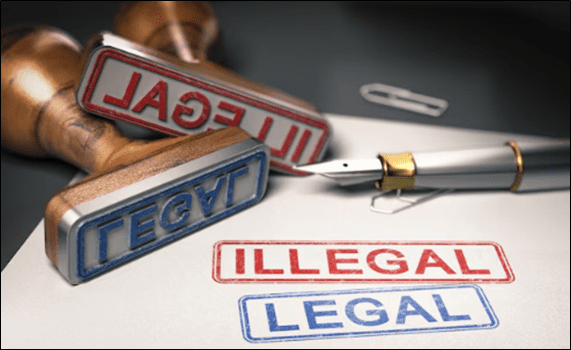Hiring a private investigator in Florida can be a crucial step in gathering information for personal, legal, or business matters. However, it’s important to understand the legal boundaries within which private investigators must operate. Knowing these legal parameters not only ensures that the investigation is conducted ethically and lawfully but also that any evidence gathered can be used effectively in legal proceedings. This blog will explore the legal boundaries of private investigations in Florida, covering licensing requirements, permissible investigative techniques, and the limitations imposed by law.

Licensing Requirements
In Florida, private investigators must be licensed by the Florida Department of Agriculture and Consumer Services (FDACS). The licensing process ensures that investigators meet specific qualifications and adhere to professional standards. Here’s what you need to know about licensing:
- Basic Requirements: To become a licensed PI in Florida, individuals must be at least 18 years old, be a U.S. citizen or legal resident, and have no disqualifying criminal history.
- Training and Experience: Prospective investigators must complete a state-approved training course and have relevant investigative experience. This may include working in law enforcement or as an intern under a licensed PI.
- Examination: Candidates must pass a comprehensive exam that tests their knowledge of Florida laws, investigative techniques, and ethical standards.

Permissible Investigative Techniques
Licensed private investigators in Florida have access to a range of techniques and tools to conduct their investigations. However, these methods must comply with state and federal laws. Here are some commonly used, legally permissible techniques:
- Surveillance: PIs can conduct physical and electronic surveillance to monitor a subject’s activities. This includes following a subject in public spaces, taking photographs, and recording videos. However, surveillance must not involve trespassing on private property or invading an individual’s reasonable expectation of privacy.
- Background Checks: Investigators can perform comprehensive background checks using public records and specialized databases. This includes checking criminal records, financial history, employment history, and social media profiles.
- Interviews and Interrogations: PIs can interview witnesses, associates, and other individuals to gather information relevant to their case. These interviews must be conducted ethically and without coercion.
- Digital Forensics: Investigators can analyze electronic devices and data to uncover digital evidence. This includes recovering deleted files, tracking online activities, and analyzing communications. However, they must obtain proper authorization to access and examine electronic devices.
- Public Records Search: PIs can access public records to gather information on property ownership, court records, business licenses, and more. These searches are conducted through legally accessible public databases.

Legal Limitations and Restrictions
While private investigators in Florida have broad investigative powers, they must operate within certain legal boundaries to avoid violating the law and compromising their findings. Here are some key limitations:
- Trespassing: PIs are prohibited from entering private property without permission. Trespassing can lead to criminal charges and invalidate any evidence obtained during the unauthorized entry.
- Invasion of Privacy: Investigators must respect individuals’ right to privacy. This means avoiding actions like wiretapping, unauthorized recording of conversations, or placing hidden cameras in private spaces.
- Impersonation: PIs cannot impersonate law enforcement officers or other government officials. Misrepresentation can lead to legal consequences and damage the investigator’s credibility.
- Stalking and Harassment: Surveillance must not cross the line into stalking or harassment. Persistent, unwanted following or contact can lead to restraining orders and criminal charges.
- Data Protection Laws: When handling digital evidence, investigators must comply with data protection and privacy laws. Unauthorized access to computer systems, hacking, or breaching data protection laws can result in severe penalties.
- Evidence Handling: Evidence must be collected, preserved, and presented in accordance with legal standards. Mishandling evidence can lead to its exclusion in legal proceedings.

Ensuring Ethical Conduct
Ethical conduct is paramount in private investigations. Here’s how PIs maintain ethical standards:
- Confidentiality: Investigators must protect client confidentiality and ensure that sensitive information is not disclosed without authorization.
- Transparency: PIs should maintain transparent communication with clients, providing regular updates and being upfront about the methods used and the progress of the investigation.
- Professionalism: Investigators must conduct themselves professionally, respecting the rights and dignity of all individuals involved in the investigation.

Conclusion
Understanding the legal boundaries of private investigations in Florida is essential for both investigators and clients. Licensed private investigators operate within a framework of laws and ethical guidelines designed to protect individuals’ rights and ensure the integrity of the investigative process. By adhering to these legal boundaries, private investigators can effectively gather evidence, provide valuable insights, and support their clients’ needs while maintaining the highest standards of professionalism and legality.
At Valdes Investigation Group, we pride ourselves on our commitment to legal and ethical standards. Our experienced and licensed investigators are dedicated to providing high-quality investigative services while respecting the legal boundaries that govern our profession. Contact us today for a confidential consultation and let us help you uncover the truth within the bounds of the law.
